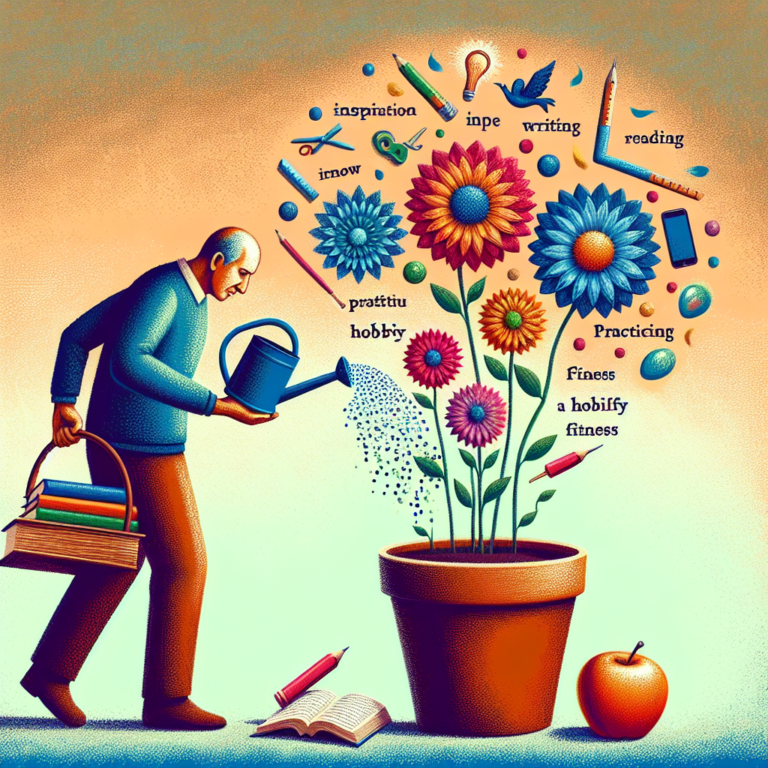How Have Teachers Inspired Generations Of Students?
Have you ever wondered how teachers have managed to inspire and shape the minds of generations of students? In a world where information is readily available at our fingertips, teachers have played an invaluable role in not only imparting knowledge but also fostering personal growth and instilling a lifelong love for learning. Through their passion, dedication, and innovative teaching methods, educators have become the catalysts for unlocking the potential within each student, leaving a lasting impact that transcends classroom walls. From kindling a curiosity for the world around us to nurturing critical thinking skills, teachers have paved the way for countless individuals to pursue their dreams and achieve greatness.

Teachers as Role Models
Leading by Example
Teachers have always played a key role in shaping the lives of their students. They have the power to inspire, motivate, and guide young minds towards a brighter future. As role models, teachers have the ability to lead by example and show their students what it means to be a responsible, compassionate, and ethical individual. By demonstrating the values they want to instill in their students, teachers can inspire a sense of admiration and respect that goes beyond the classroom walls.
Instilling Values and Morals
Beyond academic knowledge, teachers have the unique opportunity to instill values and morals in their students. They can teach them the importance of honesty, integrity, empathy, and respect. By incorporating these values into their daily interactions and lessons, teachers demonstrate the significance of being a good citizen and a caring individual. Through their actions and words, teachers encourage students to make ethical decisions, consider the consequences of their actions, and always strive to do what is right.
Creating Positive Learning Environments
Fostering a Caring and Supportive Atmosphere
Creating a positive learning environment is crucial for student success and well-being. Teachers have the responsibility to foster a caring and supportive atmosphere where students feel safe to express themselves, ask questions, and take risks. By showing genuine interest in their students’ lives, listening attentively, and being approachable, teachers establish a strong bond that forms the foundation of a positive classroom environment. This atmosphere promotes trust, collaboration, and effective communication among students, leading to enhanced learning outcomes.
Encouraging Intellectual Curiosity
Teachers can ignite a passion for learning by cultivating intellectual curiosity in their students. By posing thought-provoking questions, encouraging independent thinking, and promoting a growth mindset, teachers empower students to explore new ideas and concepts. They motivate students to think critically, analyze information, and seek knowledge beyond the boundaries of the curriculum. By fostering intellectual curiosity, teachers nurture a love for lifelong learning that extends far beyond the classroom setting.
Promoting Collaboration and Teamwork
In today’s interconnected world, collaboration and teamwork have become essential skills. Teachers play a vital role in preparing students for this reality by promoting collaboration and teamwork within the classroom. By assigning group projects, facilitating group discussions, and encouraging peer-to-peer learning, teachers teach students the importance of working together towards a common goal. These collaborative experiences not only enhance students’ social and communication skills, but also cultivate empathy, respect for diverse perspectives, and a sense of belonging within the learning community.
Igniting Passion for Learning
Making Lessons Engaging and Relevant
The key to igniting a passion for learning is making lessons engaging and relevant to students’ lives. Teachers who incorporate real-life examples, hands-on activities, and interactive technologies into their teaching inspire curiosity and excitement in their students. By connecting the subject matter to real-world applications, teachers help students understand the practical value of what they are learning. This approach not only fosters greater comprehension but also stokes students’ enthusiasm for learning.
Nurturing a Love for Education
Teachers have the power to instill a love for education in their students. By sharing their own enthusiasm and passion for their subject areas, teachers can awaken the joy of learning within their students. They can create an environment that celebrates the pursuit of knowledge, encourages intellectual exploration, and nurtures a thirst for discovery. When students develop a love for education, they become self-motivated learners who are driven to seek out new information and embrace lifelong learning.
Recognizing Individual Strengths and Talents
Every student possesses unique strengths and talents that can be nurtured and developed. Teachers have the important task of recognizing and celebrating these individual strengths, regardless of the academic realm they may lie in. By acknowledging and valuing the diverse talents of their students, teachers promote a sense of self-worth and belonging. This recognition fosters a positive self-image, boosts confidence, and encourages students to embrace and further develop their own unique strengths and talents.
Building Self-Confidence and Resilience
Providing Constructive Feedback
Constructive feedback is a powerful tool in building self-confidence and resilience in students. Teachers who provide specific, timely, and individualized feedback help students understand their strengths and areas for improvement. By focusing on the effort and progress made, rather than just the outcome, teachers empower students to take ownership of their learning journey. Through constructive feedback, students learn to view setbacks and mistakes as opportunities for growth and development, fueling their resilience and determination.
Empowering Students to Overcome Challenges
Life is filled with challenges, and teachers have the opportunity to empower students to overcome them. By teaching problem-solving strategies, fostering a growth mindset, and providing support and guidance, teachers help students develop the necessary skills and resilience to face and conquer obstacles. When students learn to approach challenges with a positive attitude and perseverance, they become more confident in their ability to navigate the complexities of life, both within and beyond the classroom.
Celebrating Growth and Success
Recognizing and celebrating growth and success is fundamental in building self-confidence and resilience. Teachers play a critical role in creating a culture of celebration by acknowledging and applauding students’ progress, achievements, and milestones. By highlighting the efforts and improvements made by each student, teachers instill a sense of pride and accomplishment. This recognition motivates students to continue working hard, persisting through difficulties, and striving for excellence.
Encouraging Critical and Creative Thinking
Challenging Assumptions and Encouraging Questioning
Teachers who encourage critical thinking inspire their students to challenge assumptions, ask meaningful questions, and examine issues from multiple perspectives. By fostering a classroom environment where all ideas are valued and respected, teachers create a safe space for intellectual exploration. They empower students to think critically, analyze information, and form their own opinions. Through this process, students develop the ability to make informed decisions, solve complex problems, and evaluate the credibility of information.
Promoting Problem-Solving and Decision-Making Skills
Problem-solving and decision-making skills are vital for success in all areas of life. Teachers have the opportunity to promote these essential skills by providing students with opportunities to solve real-world problems and make decisions in a supportive environment. By offering guidance, asking prompting questions, and encouraging students to evaluate various options, teachers enable students to develop their problem-solving and decision-making abilities. These skills empower students to face challenges with confidence, make sound choices, and adapt to different situations.
Fostering Imagination and Innovation
Imagination and innovation are driving forces behind progress and success. Teachers who foster creativity and imagination inspire students to think outside the box, explore new possibilities, and create innovative solutions. By providing opportunities for open-ended projects, artistic expression, and imaginative play, teachers tap into students’ innate curiosity and creativity. Through this process, students develop the capacity to generate unique ideas, take risks, and embrace creativity as a valuable tool for personal and societal growth.
Supporting Personal Development and Well-being
Providing Emotional Support
Teachers serve as a consistent source of emotional support for their students. They create a safe and nurturing environment where students feel comfortable expressing their emotions and seeking guidance. By listening attentively, showing empathy, and offering encouragement, teachers help students navigate challenges, manage stress, and build resilience. This emotional support fosters a sense of belonging, reduces anxiety, and promotes overall well-being, enabling students to thrive academically and personally.
Teaching Life Skills
Education goes beyond the acquisition of academic knowledge. Teachers have a responsibility to equip students with essential life skills that will serve them well beyond the classroom. These skills may include effective communication, problem-solving, time management, critical thinking, and decision-making. By incorporating these life skills into their lessons and providing opportunities for practice, teachers enable students to become self-reliant, adaptable individuals capable of thriving in various aspects of life.
Promoting Healthy Habits and Self-care
Teachers play a crucial role in promoting healthy habits and self-care among their students. By educating students about the importance of physical activity, nutrition, sleep, and mental well-being, teachers empower students to make informed choices about their health. They foster habits that contribute to overall well-being, such as stress management techniques, mindfulness practices, and the importance of maintaining a healthy work-life balance. Through these efforts, teachers support students’ holistic development, enabling them to lead healthy and fulfilling lives.
Cultivating a Sense of Community and Empathy
Emphasizing the Importance of Kindness and Respect
Teachers have the power to cultivate a sense of community and empathy by emphasizing the importance of kindness and respect in their classrooms. Through modeling these values in their own interactions and setting clear expectations for behavior, teachers create an environment where kindness and respect are integral to the learning experience. By encouraging students to treat one another with empathy and compassion, teachers foster a supportive community that celebrates diversity and values the contributions of each individual.
Encouraging Inclusivity and Acceptance
Inclusive classrooms are essential for creating a positive and enriching learning environment. Teachers have the opportunity to encourage inclusivity and acceptance by celebrating and respecting the diversity of their students. By incorporating diverse perspectives, incorporating multicultural resources, and promoting open discussions about social issues and equality, teachers cultivate an inclusive mindset among students. This mindset encourages students to appreciate differences, challenge stereotypes, and work towards a more inclusive and equitable society.
Inspiring Students to Make a Difference
Teachers have the power to inspire students to make a difference in their communities and the world. By teaching about social issues, promoting empathy, and empowering students to take action, teachers encourage students to use their voices and talents to effect positive change. They provide opportunities for students to engage in service-learning projects, community service initiatives, and advocacy efforts. Through these experiences, students cultivate a sense of agency, empathy, and social responsibility, shaping them into active global citizens.
Championing Diversity and Equality
Creating Safe Spaces for Expression
Teachers play a vital role in creating safe spaces for students to express their identities and perspectives. By fostering an inclusive and accepting environment, teachers ensure that students feel comfortable sharing their experiences, thoughts, and concerns. Through open and respectful dialogue, teachers encourage students to embrace their individuality, appreciate diverse perspectives, and recognize the value of every voice. Creating safe spaces allows students to grow as individuals and develop a greater understanding and appreciation for the diversity that exists in the world.
Celebrating Different Cultures and Perspectives
Teachers who celebrate different cultures and perspectives contribute to a rich and inclusive educational experience. By incorporating multicultural literature, cultural celebrations, and diverse perspectives into their lessons, teachers provide students with a broader understanding of the world. This exposure fosters empathy, cultural competence, and a respect for differences. By embracing diversity, teachers empower students to confront biases, challenge stereotypes, and become advocates for equality and justice.
Addressing Social Justice Issues
Teachers have a responsibility to address social justice issues and promote equity in their classrooms. By teaching about social inequalities, systemic injustices, and historical struggles for justice, teachers empower students to critically examine societal issues and take action. They foster a sense of activism and a commitment to creating a more just and equitable society. By encouraging students to use their voices to bring about positive change, teachers equip them with the tools to challenge injustice and advocate for social equality.
Preparing Students for the Future
Teaching Essential Skills for Success
Teachers have an important role in preparing students for the future by teaching them essential skills for success. These skills include critical thinking, problem-solving, communication, collaboration, adaptability, and technological literacy. By integrating these skills into their lessons and providing opportunities for real-world application, teachers equip students with the tools they need to thrive in an ever-evolving world. These skills are not only valuable for academic success but also important for success in careers and life.
Guiding Career Exploration and Goal Setting
Teachers can guide students in exploring different career paths and setting meaningful goals for their future. By providing information about various careers, exposing students to different industries, and facilitating career exploration activities, teachers help students make informed decisions about their future. They also support students in setting realistic and achievable goals, providing guidance and resources along the way. By helping students connect their academic pursuits to their future aspirations, teachers inspire hope and motivation for a successful future.
Instilling a Lifelong Love for Learning
One of the most valuable gifts teachers can give to their students is a lifelong love for learning. By instilling a passion for knowledge, curiosity, and intellectual growth, teachers create students who are not only capable of academic success but also eager to continue learning throughout their lives. By modeling lifelong learning themselves, sharing their own enthusiasm for learning, and fostering an environment that celebrates intellectual exploration, teachers cultivate a love for learning that extends far beyond the classroom walls, enabling students to thrive in their personal and professional lives.
Nurturing Positive Relationships and Mentorship
Building Trust and Connection
Building trust and connection is essential for effective teaching and learning. Teachers who invest time and effort into developing positive relationships with their students create a supportive learning environment where students feel valued and understood. By getting to know their students individually, showing genuine interest in their lives, and actively listening to their needs and concerns, teachers establish a foundation of trust and respect. This trust allows students to take risks, seek guidance, and develop a sense of belonging within the classroom community.
Providing Guidance and Support
Teachers have the opportunity to provide guidance and support to their students beyond academic instruction. They can serve as mentors and role models, offering advice, encouragement, and emotional support when needed. By being available to students, offering a listening ear, and providing guidance on personal and professional matters, teachers become a valuable source of support throughout their students’ lives. This mentorship helps students navigate challenges, make informed decisions, and develop the necessary skills and resilience to overcome obstacles.
Being a Source of Inspiration
Teachers have the power to inspire their students to reach for the stars and believe in their own potential. By sharing their own stories of success, demonstrating perseverance, and offering words of encouragement, teachers inspire students to dream big and pursue their goals. They provide examples of individuals who have overcome obstacles and achieved greatness, instilling in students the belief that they too can accomplish their dreams. Through their unwavering support and belief in their students’ abilities, teachers become a source of inspiration that can shape the trajectory of their students’ lives.
In conclusion, teachers have an immense impact on the lives of their students. As role models, they lead by example and instill values and morals. By creating positive learning environments, they foster caring and supportive atmospheres, encourage intellectual curiosity, and promote collaboration and teamwork. Teachers ignite a passion for learning by making lessons engaging and relevant, nurturing a love for education, and recognizing individual strengths and talents. They build self-confidence and resilience by providing constructive feedback, empowering students to overcome challenges, and celebrating growth and success. Teachers encourage critical and creative thinking by challenging assumptions, promoting problem-solving and decision-making skills, and fostering imagination and innovation. They also support personal development and well-being by providing emotional support, teaching life skills, and promoting healthy habits and self-care. Teachers cultivate a sense of community and empathy by emphasizing kindness and respect, encouraging inclusivity and acceptance, and inspiring students to make a difference. They champion diversity and equality by creating safe spaces for expression, celebrating different cultures and perspectives, and addressing social justice issues. Teachers prepare students for the future by teaching essential skills for success, guiding career exploration and goal setting, and instilling a lifelong love for learning. Finally, they nurture positive relationships and mentorship by building trust and connection, providing guidance and support, and being a source of inspiration. Through their dedication, passion, and unwavering commitment to their students’ growth and success, teachers continue to inspire generations of students.







